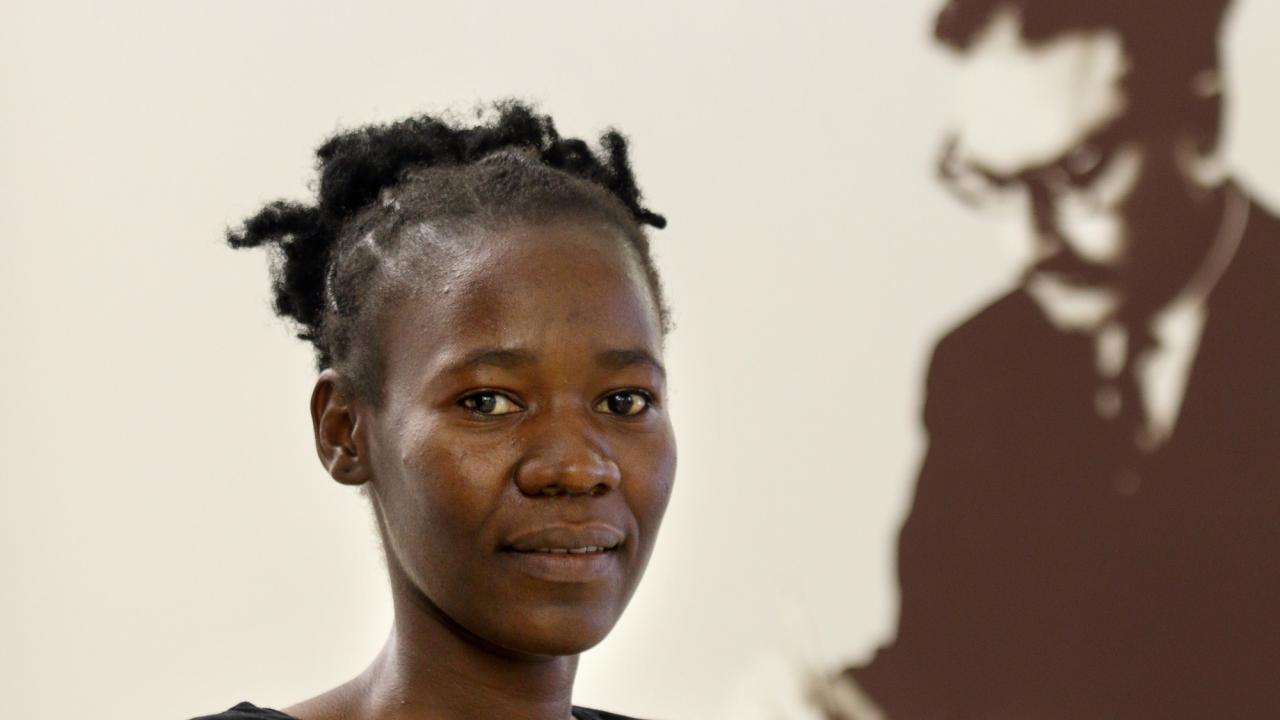
ICTP's Postgraduate Diploma Programme started in 1991; 30 years and more than 1000 graduates later, it has become one of the Centre's most successful programmes. Many Diploma graduates have gone on to earn their PhD degrees at prestigious institutions all over the world, including Harvard, Princeton and Oxford. At the same time, a measure of success for the programme is how many scientists return to their home countries to develop science communities, thus supporting ICTP's mission to promote advanced scientific research for all.
Kadja Flore Gali, an atmospheric physics student from Chad, is among the latest Diploma alumni on track to becoming another Diploma success story. After a year of intense study at ICTP, she has been accepted to a PhD programme in the United States, but her ultimate goal is to return home to put her acquired skills to good use. Her dream is to establish the roots of a blossoming research community in the field of atmospheric physics in her home country.
In the following interview, she talks about how she got interested in studying atmospheric physics, and how she hopes that her year at ICTP will give her an opportunity to pursue a successful career in science.
When and why did you decide to dedicate your studies to physics?
During my bachelor's degree in Chad, I attended some courses related to atmospheric science and meteorology. I became excited about the possibility to understand, through physics, what the weather will be like tomorrow. The weather in our country is quite bad, because at times the temperature gets really hot, so I thought that it would be useful to know how to predict the weather conditions and the temperature. I asked my meteorology professor how I could learn more about this field, and I ended up doing an internship in the meteorological station in Sarh, Chad. There, I could learn how to collect data and interpret them, and I found it really exciting. Then I decided to continue studying weather prediction at the University of Yaoundé I, in Cameroon, for a master's in atmospheric science, and now I'm here.
How did your research interests lead you to ICTP's Postgraduate Diploma Programme?
I found out about the Diploma Programme from ICTP's staff member Koutou Mabilo, when she was in Chad, and she suggested me to apply. I think that when you are excited about something, you will find a way to pursue it. I really want to build a career in meteorology science, so when I discovered the Diploma Programme and what it offers, it seemed a great opportunity and I decided to apply. I did not have somebody to mentor me about this choice, as I am in fact the first Diploma student in my section, Earth System Physics, from my country.
In your opinion, what were the strengths of the Postgraduate Diploma Programme?
I think ICTP is the perfect place for a young scientist from a developing country to find an opportunity to pursue a career in science. My dream is to be a professor one day, and open my own department atmospheric physics in my country. I will do my best, but of course I need a bit of help.
My favourite thing about the Diploma Programme is how they managed to give us everything that we needed, so we could just concentrate on studying and not worry about anything else.
What was your diploma thesis about?
My thesis was on "Statistics of cold pools derived from high resolution cloud resolving models," with supervisor Professor Adrian Tompkins from ICTP's Earth System Physics section. We used a regional model to analyse data related to cold pools detection using a wathershed algorithm, then trying to understand how they trigger the formation of new clouds, in order to study the convective system and forecast rain precipitation in a certain region.
What are your future plans?
I got a PhD position in the United States, in Michigan Technological University. The group that I will work with is working on cloud formation in a cloud chamber, so I am going to work more or less in the same field as my Diploma thesis. After my PhD, I don't know what I will do or where I will go. I will look for a postdoc position and try to learn and acquire new skills as much as I can. Then, I would like to create my own network and find partnerships to create new opportunities for students like me in my own country.
What are some challenges scientists face in pursuing their careers in your home country?
In Chad it is particularly complicated for girls to pursue advanced studies in science, because of an old mentality that science is not a good career for women. But I have always thought: "If someone can do it, then I can also do it. And if I can do it, then why not? I will do it!"
--Marina Menga
















